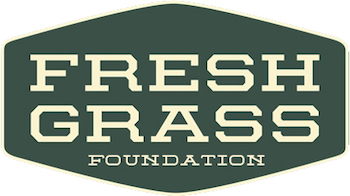Album Review: Joni Mitchell, ‘Archives – Volume 3: The Asylum Years (1972-1975)’

What a banner year it has been for fans of Joni Mitchell and for lovers of folk music. In September, Rhino released The Asylum Albums, a boxed set of newly remastered versions of the four albums Mitchell recorded there between 1972 and 1975: For the Roses (1972), Court and Spark (1974), Miles of Aisles (1974), The Hissing of Summer Lawns (1975).
Now Rhino has released another box set (5 CDs or 4 LPs) that cover the same years but that dig deep into the archives to gather never-before-heard demos, outtakes from various sessions for each album, and recordings from a variety of live performances.
The 96 songs on these five CDs offer a glimpse into Mitchell’s creative process and provide insights into the dynamics of her songwriting. At the center of the set is Mitchell’s exquisite voice, its crystalline tones ringing like a bell on songs such as the piano suite that opens with “Down to You,” and moves through “Court and Spark” and “Car on a Hill” before returning to “Down to You.” Her vibrant and transportive piano arrangement on this medley resonates ethereally, creating an atmospheric jazz etude that draws in her listeners.
The material collected in the set showcases Mitchell’s ability to inhabit her songs and to emerge with new arrangements that shine new light on even familiar Mitchell songs, and every track illustrates Mitchell’s eloquent vocal phrasing. She moves effortlessly from folk to classical to jazz, and in many ways she’s above all a jazz singer; her scat singing on the early alternate version of “Twisted” from the For the Roses sessions amply demonstrates her canny ability to do whatever she wants with a song to deliver it in her own singular fashion.
Mitchell’s always playful character emerges on many of these tracks. At a performance of “The Circle Game” at Carnegie Hall on February 23, 1972, she tells her audience that she wrote the song as a sing-along, and she calls out Crosby, Stills, Nash, and Young to sing along with her. She then asks that the house lights be brought up so she can see the audience, and she tells them to think of themselves as singing the Hallelujah Chorus with us—Mitchell and CSNY—as “your audience.” In an early session during the recording of For the Roses, she and James Taylor laugh and as they woodshed a medley of “Bony Moronie,” “Summertime Blues,” and “You Can Never Tell.”
Mitchell waxes philosophical in an intro to a live version of “Big Yellow Taxi,” which she introduces as “You Really Don’t What You Got ‘Till It’s Gone,” at an April 15, 1973, show at Paul Sauvé Arena in Montreal, Quebec. In her intro, she talks about her own pantheistic belief that God is a part of everything, and she declares that she doesn’t think “man is going to be content until he’s paved and flooded everything, and by then it’s going to be too late.” She adds a line to the penultimate verse that conveys the effect of environmental destruction on individuals: “Late last night, I heard the screen door slam/And a big yellow tractor took away my house and pushed around my land.”
Every track on this Joni Mitchell Archives, Vol. 3: The Asylum Years (1972-1975) reveals more and more of Mitchell’s magic ways with a song. Listen to the version of “You Turn Me on I’m a Radio” with Neil Young and the Stray Gators from an early session of the For the Roses sessions with Young’s harmonica playing counterpoint to Mitchell’s vocals. Then listen to the bluesy piano trill on the same song from Mitchell’s performance with Tom Scott & The L.A. Express from March 1974 at the LA’s Dorothy Chandler Pavilion and the ways that Mitchell’s soaring vocals play call and response with the guitar on the song’s outro. Those two performances alone reveal Mitchell’s breadth and depth and ceaseless creativity, but every track here illuminates the evolution of Mitchell’s style and the stunning beauty of her vocals.
###
Archives – Volume 3: The Asylum Years (1972-1975) is available HERE
Resources
JoniMitchell.com
News
Music & Merch
Follow at:



